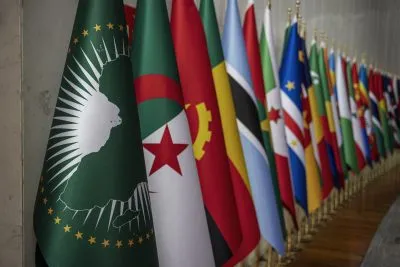Developing countries are on a “path to crisis” and face another “lost decade” unless more support from creditors is forthcoming, says the World Bank.
Developing nations spent a record $443.5bn to service their external public and publicly guaranteed debt in 2022, the World Bank’s 50th International Debt Report shows. Debt-service payments – which include principal and interest – increased by 5% over the previous year for all developing countries as global interest rates remain at four-decade highs.
This week, African Business reported that Ethiopia could became the latest African nation to default on its debt after missing a bond payment. It would join Ghana and Zambia’s as Africa’s latest debt defaulters.
“Record debt levels and high interest rates have set many countries on a path to crisis,” said Indermit Gill, the World Bank Group’s chief economist and senior vice president.
“Every quarter that interest rates stay high results in more developing countries becoming distressed – and facing the difficult choice of servicing their public debts or investing in public health, education, and infrastructure.
“The situation warrants quick and coordinated action by debtor governments, private and official creditors, and multilateral financial institutions – more transparency, better debt sustainability tools, and swifter restructuring arrangements. The alternative is another lost decade.’’
The report says that interest payments consume an increasingly large share of low-income countries’ expenditure, and more than a third of their external debt involves variable interest rates that could rise suddenly.
“Many of these countries face an additional burden: the accumulated principal, interest, and fees they incurred for the privilege of debt-service suspension under the G-20’s Debt Service Suspension Initiative. The stronger US dollar is adding to their difficulties, making it even more expensive for countries to make payments. Under the circumstances, a further rise in interest rates or a sharp drop in export earnings could push them over the edge,” the Bank writes.
The trends were reflected in debt servicing costs accumulated by countries eligible to borrow from the World Bank’s International Development Association (IDA), which supports the poorest nations. The 75 eligible countries paid a record $88.9bn in debt servicing costs in 2022.
Over the past decade, interest payments by these countries have quadrupled to an all-time high of $23.6bn in 2022. Overall debt-servicing costs for the 24 poorest countries are expected to balloon in 2023 and 2024 by as much as 39%, the report finds.
The report notes that IDA-eligible countries have spent the last decade adding to their debt at a pace that exceeds their economic growth, which the Bank says is “a red flag for their prospects in the coming years”.
From 2012 through 2022, IDA-eligible countries increased their external debt by 134%, outstripping the 53% increase they achieved in their gross national income.
Financing options dwindle
As debt-servicing costs have climbed, new financing options for developing countries have dwindled. In 2022, new external loan commitments to public and publicly guaranteed entities in these countries dropped by 23% to $371bn, the lowest level in a decade.
Private creditors largely abstained from developing countries, receiving $185bn more in principal repayments than they disbursed in loans. That marked the first time since 2015 that private creditors have received more funds than they put into developing countries.
New bonds issued by all developing countries in international markets dropped by more than half from 2021 to 2022, and issuances by low-income countries fell by more than three-quarters. New bond issuance by IDA-eligible countries fell by more than three-quarters to $3.1bn.
Want to continue reading? Subscribe today.
You've read all your free articles for this month! Subscribe now to enjoy full access to our content.
Digital Monthly
£8.00 / month
Receive full unlimited access to our articles, opinions, podcasts and more.
Digital Yearly
£70.00 / year
Our best value offer - save £26 and gain access to all of our digital content for an entire year!

 Sign in with Google
Sign in with Google 



